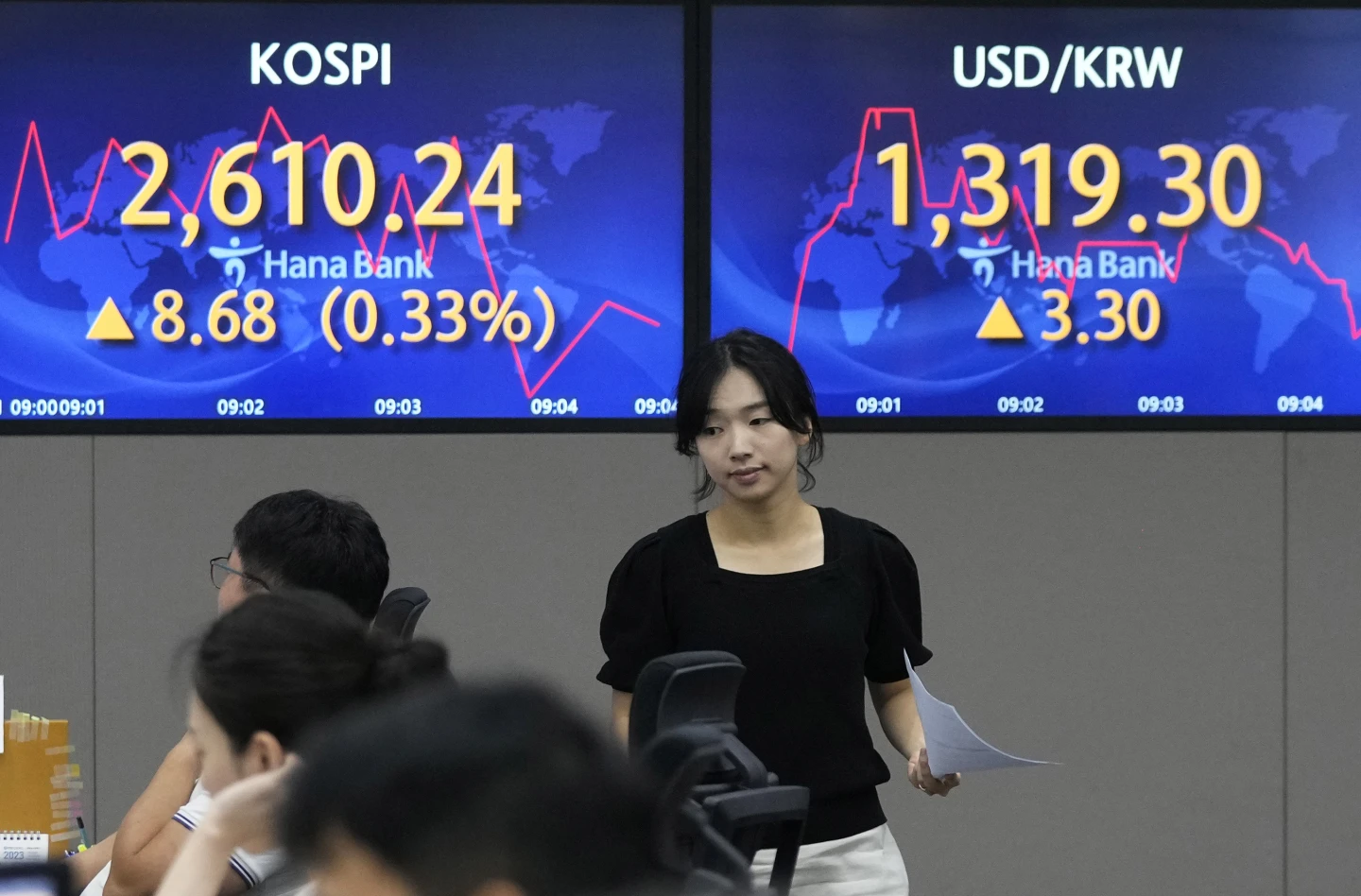

Asian stock markets declined Friday after U.S. inflation edged higher, fueling unease about the outlook for the biggest global economy.
Shanghai, Hong Kong and Sydney declined. Japanese markets were closed for a holiday. Oil prices edged lower.
Wall Street’s benchmark S&P 500 index gained less than 0.1% on Thursday after government data showed consumer prices rose 3.2% in July. That was higher than the previous month but below forecasts.
Traders hope the data will persuade the Federal Reserve that inflation that peaked above 9% last year is under control and no more interest rate hikes are needed.
“As benign as the inflation report was initially interpreted, investors quickly shifted concerns to factors that could disrupt the narrative, such as scorchingly high energy and food prices,” said Stephen Innes of SPI Asset Management in a report.
The Shanghai Composite Index lost 0.7% to 3,231.05 and the Hang Seng in Hong Kong fell 0.6% to 19,131.11.
The Kospi in Seoul gained less than 0.1% to 2,602.31 while Sydney’s S&P-ASX 200 sank 0.2% to 7,344.60.
Bangkok gained while New Zealand and other Southeast Asian markets declined.
On Wall Street, the S&P 500 rose to 4,468.83 for its second daily gain in the past eight days.
The Dow Jones Industrial Average gained 0.2% to 35,176.15. The Nasdaq composite added 0.1% to 13,737.99.
U.S. inflation in July was up from the previous month’s 3% but below forecasts of 3.3%.
Beneath the surface, underlying trends for inflation were also within expectations.
The readings bolstered hopes among investors that the Federal Reserve’s anti-inflation campaign worked and no more rate hikes are needed. They hope the Fed can achieve a “soft landing” by cooling inflation without tipping the economy into recession.
Critics say Wall Street might have latched too early onto a belief that inflation is under control and the Fed’s rate-hiking cycle is finished. The Fed has said its decisions on possible additional increases will be based on inflation, hiring and other data.
Thursday’s report likely gives the Fed a reason to hold rates steady at its next meeting in September, according to Gargi Chaudhuri, head of iShares Investment Strategy, Americas.
The government is due to report wholesale inflation on Friday. More reports on inflation and hiring are due out before the Fed’s next meeting that ends Sept. 20.
Also Thursday, the government reported slightly more workers applied for unemployment benefits last week than expected. That might help to reassure the Fed that hiring, which has stayed unexpectedly strong, isn’t contributing to upward pressure on prices.
Big U.S. companies, meanwhile, are reporting mostly better profits than expected.
The Walt Disney Co. rose 4.9% after saying it would raise prices for some of its streaming services in hopes of boosting profitability. The entertainment giant reported stronger profit for the spring than analysts expected but weaker revenue.
Capri Holdings, which owns the Michael Kors, Versace and Jimmy Choo brands, soared 55.7% after Tapestry, the company behind luxury handbag and accessories retailer Coach, said it was buying the company for roughly $8.5 billion. The deal would put it in better position to take on big European rivals such as LVMH. Tapestry fell 15.9%.
In the bond market, the yield on 10-year Treasury debt rose to 4.09% from 4.01% late Wednesday.
The two-year Treasury yield, which moves more on expectations for the Fed, ticked up to 4.81% from 4.80% late Wednesday.
In energy markets, benchmark U.S. crude lost 6 cents to $82.76 per barrel in electronic trading on the New York Mercantile Exchange. The contract fell $1.58 on Thursday to $82.82. Brent crude, the price basis for international oil trading, lost 5 cents to $86.35 per barrel in London. It declined $1.15 the previous session to $86.40.
The dollar was unchanged at 144.72 yen. The euro held steady at $1.0990.